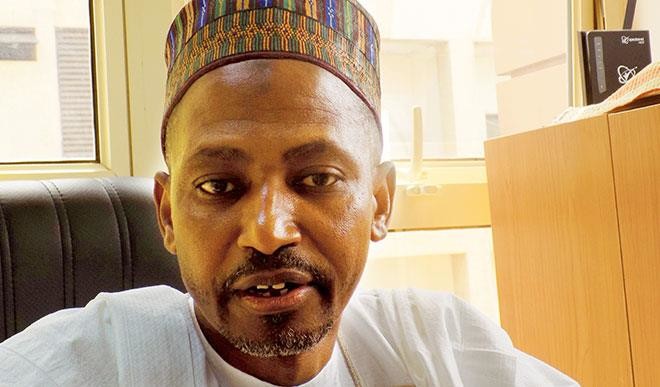FAEO to benefit African engineers – Sehu
Engr. Mustapha Balarabe Shehu, is the President of Federation of African Engineering Organization (FAEO), the umbrella body of engineering societies from almost all the African countries. In this interview, he traces the origin of FAEO and the stake for Nigeria. Excerpts: How did FAEO came into being? Well actually FAEO is not a new organization; […]


Engr. Mustapha Balarabe Shehu, is the President of Federation of African Engineering Organization (FAEO), the umbrella body of engineering societies from almost all the African countries. In this interview, he traces the origin of FAEO and the stake for Nigeria. Excerpts:
How did FAEO came into being?
Well actually FAEO is not a new organization; it was initially established as far back as 1972 in Cairo. The essence of getting it established is to have an African engineering voice to represent African engineering institutions internationally, at that time it was known as Federation of African Organization of Engineers FAOE, but with time it was made to have international membership with WFEO World Federation of Engineering Organizations, the world body of engineering comprising world engineering institutions all over the world with headquarters in Paris.
Somehow with the passage of time there was a period of inactivity on the part of the federation for a long time and of course nature abhors vacuum. There were some challenges that the inactivity brought like another organization cropped up from the South African region which they called African Engineering Forum AEF promoted by South Africa. This AEF started getting some recognition and at a time given observer status at the WFEO.
So there was conflict between AEF and FAEO, but then sometime around 2008 and 2009 there was a move to have one unified body for all African engineering institutions. In 2011 at the World Engineering Conference in Geneva we took up the challenge of organizing a general assembly in Kenya in 2012 in order to resolve the issue.
It was during that general assembly in 2012, incidentally I became the President of the Nigerian Society of Engineers NSE that same year, so I led the Nigerian delegation to that assembly in Kenya. We did a lot of negotiation trying to pacify and accommodate all interest groups. At the end we were able to agree to have a single engineering body representing Africa and we agreed that South Africa should lead that organization for the next two years. And they deserved it because in truth S/African engineering institutions are more than 100 years old compared to Nigeria with over 55 years.
So how did you become the President?
It was at that meeting we agreed that S/Africa should produce the president for the first time then we elected a President Elect who automatically becomes an incoming president just like we have at the Nigerian Society of Engineers NSE. That was how I was elected and at the end of the tenure of S/Africa in 2014 I took over and started my tenure in 2015 and will end in 2016.
What are your achievements since you took over?
During the S/African tenure we tried to galvanize African institutions by making sure that we reach out to many African countries. We started by creating regional bodies like West African Federation, East African Federation, S/African Federation of African Engineers, Central African body and of course we are trying now to inaugurate the Northern chapter.
We also started reaching out to some international organizations like the African Union AU. We of course had reported to the world body of engineering WFEO that we have resolved the African dispute which changed from FAOE to FAEO.
So we were recognized and just last month Chatham House in London invited and hosted me to deliver a keynote address as President FAEO on the deficit of infrastructure in sub Saharan Africa and what needs to be done.
We have been discussing with the AU for the past year and a half and we are now at the verge of signing MoU on a technical agreement probably in the next couple of weeks we will both sign the agreement.
Another achievement is the increase in membership of the organization, there are some countries that don’t have membership like Niger, Gambia, Senegal, and Sudan. Also we just received letter recently from the Egyptian Engineers Syndicate, they have over 700,000 members, applying to be members of FAEO.
At the WFEO we have three African engineers who are chairmen of technical committees, Nigeria is one of them, Zimbabwe and S/Africa are the others.
What would Nigeria benefit as a member of FAEO?
One, it is the networking, when you a have such a platform you get to know each other, know the capacity of each other and opportunities available, if you don’t reach out you will not know of the resource available out there. You may be having a project which you may not have the expertise and you know somebody in S/Africa or Egypt that has such you join hands together. In Africa once you have certification of FAEO it means you can work anywhere within the continent. It is a great advantage.
Last year we had exco meeting in Zimbabwe and there we took a decision that we shall be having our conference this year in Uyo, A/Ibom State with collaboration with NSE, the idea is to be rotating such conferences from one region of Africa to the other. Some countries have already started intimating us of their interest to host the next conference.
Ten years down the line, how would you like to foresee FAEO?
My dream is that in the next ten years the name FAEO will be everywhere in Africa and in the world, when you do things to add value to people’s lives then people will know and try to belong. We are going to be doing programmes that will be run in the whole of Africa that will promote engineering and development and also create jobs.
